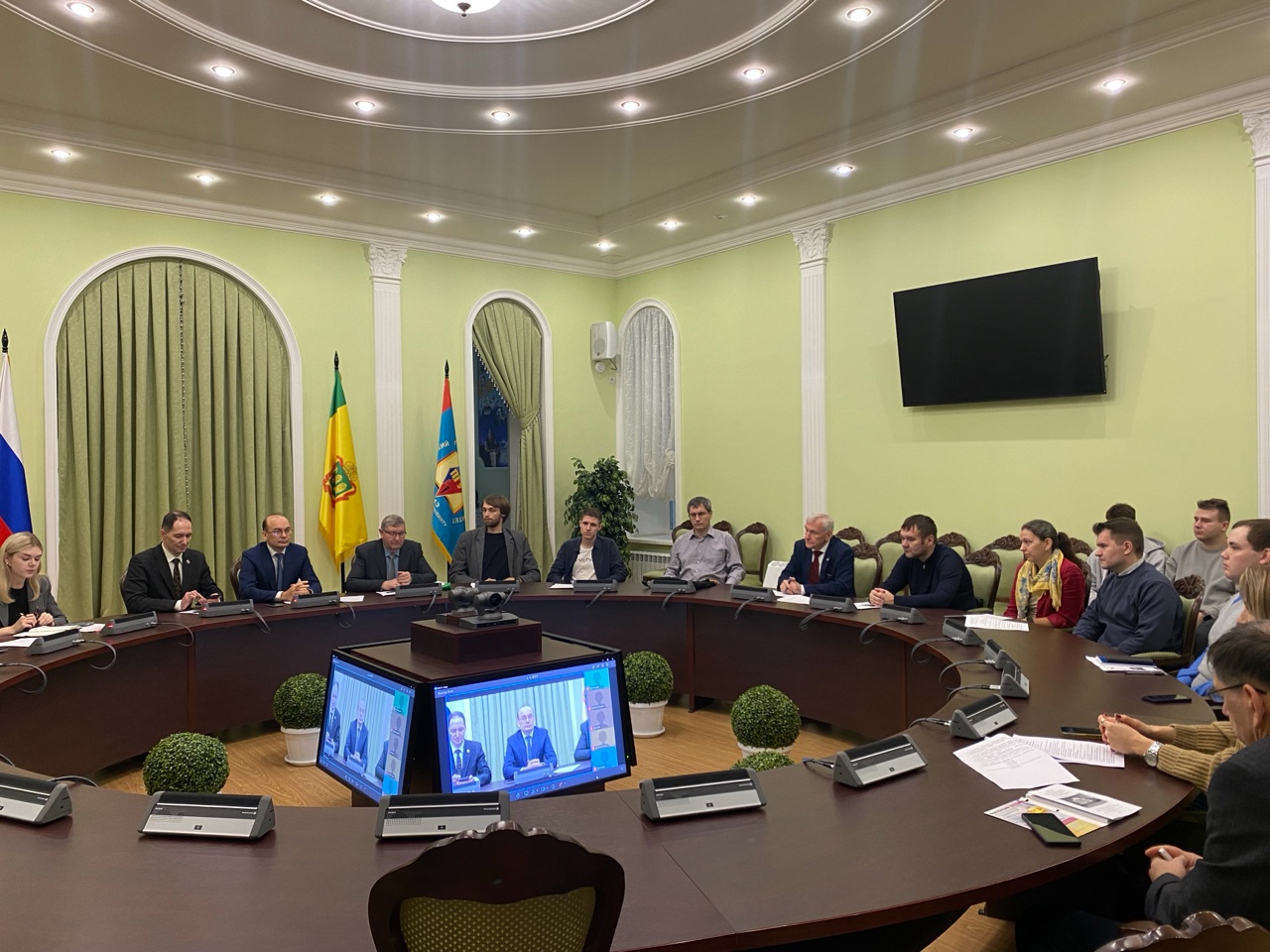PSU discussed the problems of computer science in education, management, economics and technology
 The XXIV International Scientific and Technical Conference “Problems of Computer Science in Education, Management, Economics and Technology” was held at Penza State University on Friday, November 22, and became a significant event in the world of information technology and its application in various fields.
The XXIV International Scientific and Technical Conference “Problems of Computer Science in Education, Management, Economics and Technology” was held at Penza State University on Friday, November 22, and became a significant event in the world of information technology and its application in various fields.
The conference was organized by the Department of Information and Computation Systems and the Department of Computer Technologies, PSU. The co-organizer was Parul University (India).
The conference brought together leading scientists, researchers and practitioners from Russia, India, Malaysia, Serbia, Armenia, Bosnia and Herzegovina, Kazakhstan and Belarus, which emphasizes its international scale and relevance of the topics discussed.
Opening the conference, Sergei Vasin, Vice-Rector for Research and Innovation at PSU, noted the importance of such events for the development of scientific potential and exchange of experience.
"The conference is being held for the 24th time. Serious experience and knowledge have been accumulated. The importance of informatization tools for the development of various sciences cannot be overestimated," Sergei Vasin emphasized.
Andrei Kuzmin, Head of the Department of Information and Computation Systems, who moderated the plenary session, drew the participants' attention to the increased interest in the issues under discussion around the world.
"This year we have many foreign participants, our colleagues from universities in different countries," Andrei Kuzmin noted.
The conference was held with the support of the IEEE Russia Joint Sections Information Theory Society (Skolkovo Institute of Science and Technology). Its chairman Pavel Rybin (Skolkovo Institute of Science and Technology), who took part in the forum online, highlighted the role of information technology in solving global challenges of our time and noted the rapid development of artificial intelligence and its impact on various industries.
Anand Joshi, Professor and Director of the Parul University Research Center, in turn, focused on promising areas of cooperation between Russian and Indian researchers, emphasizing the importance of knowledge exchange and joint projects.
Plenary reports presented a wide range of research, demonstrating cutting-edge achievements in the field of computer science.
The report by Dr., Prof. Rajasvaran Logeswaran (HELP University, Kuala Lumpur) was devoted to the use of artificial intelligence and robotics in modern healthcare. Specific examples of the use of robotic systems in surgery, diagnostics and patient care were considered. Issues of ethics and safety of using such technologies were touched upon, as well as prospects for their further development in the context of integration with big data and the Internet of Things.
Dr. Prince Jain (Parul University) presented the results of a comparative study of ensemble machine learning models for predicting calorie burn during exercise. This study has significant implications for developing personalized fitness and health management programmes. He described in detail the algorithms used in the study and analyzed their accuracy and efficiency. A comparison with traditional calorie calculation methods was also presented, allowing us to assess the benefits of using machine learning.
Pavel Astanin (N.I. Pirogov Russian National Research Medical University) highlighted the key areas of glossary development based on the unified national medical nomenclature. This is a pressing task for ensuring a single medical language and information exchange between different medical institutions. The report also touched on the prospects for using the glossary in electronic health systems.
Dmitry Gribkov (Penza State University) presented the results of modeling arterial bifurcations of the intraorgan bed of the human kidney using various neural network approaches. This study is important for understanding the mechanisms of kidney disease development and devising new diagnostic and treatment methods. The report demonstrated the results of a comparative analysis of various neural network architectures and identified the most effective approaches to modeling complex geometric structures.
The report by Dr. Svetlana Borojević and Nikola Petrović (Bosnia and Herzegovina, Serbia) was devoted to the methodology of experimental research in telepsychology. They considered specific methods of studying psychological processes at a distance, including the use of special equipment and programmes for analyzing physiological data. The report presented examples of the use of telepsychological methods in clinical practice and education.
Dr., Prof. Lyudmila Gerasimova-Meygal (Petrozavodsk) presented a report on stress level assessment using smart clothing sensors and heart rate variability parameters. This report illustrated modern approaches to monitoring the psychophysiological state of a person using wearable sensor systems. Algorithms for processing data obtained using sensors were discussed, as well as the possibilities of using this data for early diagnosis of stress conditions and the development of effective methods for overcoming them.
Overall, the conference demonstrated a wide range of research in the field of computer science and its application in solving pressing problems of our time.
About 50 reports were presented in three sections. Section topics included theoretical computer science, machine learning and neural networks, theoretical and applied programming; information technology, applied aspects of computer science, information systems and technologies in education; information systems and technologies in medicine.
The conference continued on Saturday, November 23. The round table, organized by representatives of the student scientific group, discussed the problems of developing complex software systems. The speaker was Vladimir Drozhdin, associate professor of the Department of Information and Computation Systems, and the organizer was student Ekaterina Ryabova.
The event was held within the framework of a subsidy from the federal budget to educational organizations of higher education for the implementation of events aimed at supporting student scientific communities.







 Версия для печати
Версия для печати